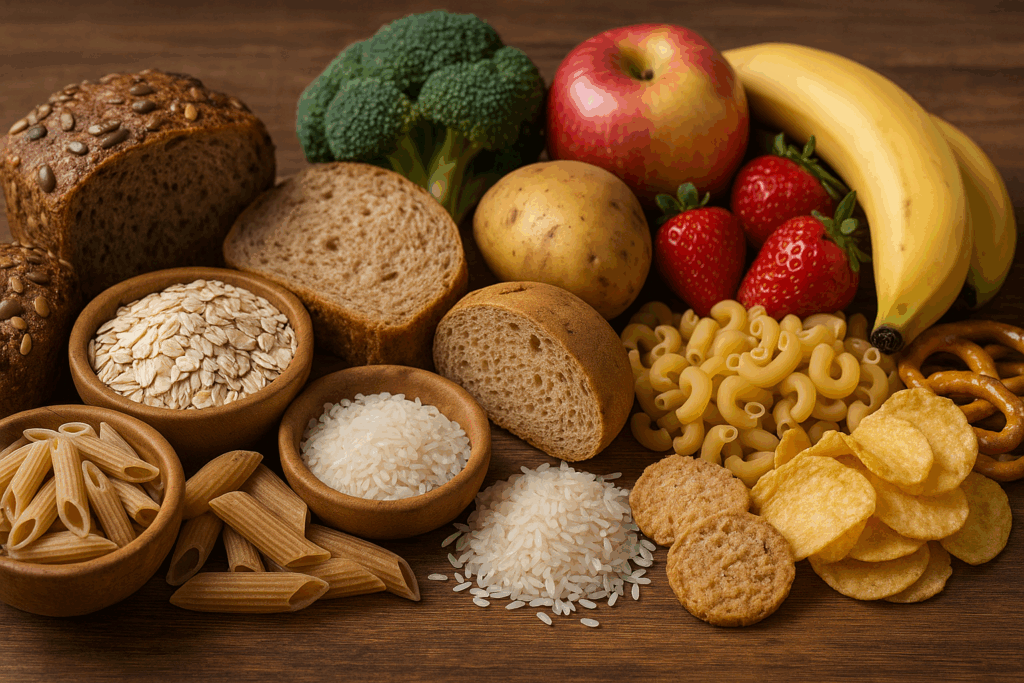Introduction
Trying to lose weight but not seeing results? You’re not alone. Many people struggle because they believe common weight loss myths that simply aren’t true. In this article, you’ll discover 7 of the biggest myths that could be holding you back—and learn what actually works instead.
Weight loss is a journey that requires knowledge, patience, and the right mindset. When you’re following false information, it’s like trying to drive with the wrong directions. This article will guide you back on track and help you make smarter choices starting today.
Why This Topic Matters
Weight loss can feel confusing. With so many tips on the internet, it’s easy to follow advice that sounds right but doesn’t work. The problem? Believing in myths wastes your time, lowers motivation, and may even harm your health. Understanding what’s actually true helps you focus on real strategies that bring results.
These myths can lead you to overwork yourself, eat in unhealthy ways, or even give up because you think your body is broken. The truth is: your body isn’t the problem—the information you’re using might be. That’s why it’s so important to separate fact from fiction.
Self-Reflection and Personal Goals

Before diving into the myths, think about your own goals. Are you trying to lose a few pounds for health reasons, or do you want to feel more confident in your clothes? Maybe you’ve tried a few diets, lost some weight, and then gained it back.
That’s okay—everyone’s journey is different. But the key is to get honest with yourself. Ask:
- Am I following tips that sound too good to be true?
- Am I avoiding carbs or skipping meals because someone told me to?
- Am I expecting fast results without changing my habits?
Also, think about what motivates you. Is it your family? Your health? Wanting to feel proud of how you look? When you connect with your personal reasons for wanting to lose weight, you’re more likely to stick with the changes that matter.
The Science Behind Weight Loss Myths
Many weight loss myths come from old ideas or misread science. For example, people used to think that eating fat makes you fat. But now we know that healthy fats, like those from avocados or nuts, are actually good for your body.
Research shows that weight loss mostly comes down to a calorie deficit—burning more energy than you take in. But how you get there matters. Quick fixes and crash diets may give short-term results, but they rarely last.
Hormones also play a role. For example, lack of sleep increases a hormone called ghrelin, which makes you feel hungrier. Stress affects cortisol levels, which can cause your body to hold onto fat. Science shows us that successful weight loss is about more than just willpower—it’s about understanding how your body works.
Myth #1: Carbs Are the Enemy

Carbohydrates are often blamed for weight gain. But your body needs carbs for energy, especially if you’re active. The real problem is processed carbs—like sugary snacks and white bread—not healthy carbs like oats, fruits, and sweet potatoes.
Cutting out all carbs can leave you tired, moody, and low on energy. Complex carbs give your brain and muscles the fuel they need. Instead of avoiding them, focus on choosing the right kinds and eating them in balanced portions.
Myth #2: You Have to Eat Less to Lose Weight

Sure, eating fewer calories matters—but starving yourself is not the answer. It slows your metabolism, makes you tired, and leads to binge eating. Focus on eating better, not just less.
Instead of skipping meals, try eating nutrient-rich foods that keep you full longer. Fiber, protein, and healthy fats are your best friends. When you eat enough of the right foods, you won’t feel the need to overeat later.
Myth #3: Fat-Free Foods Help You Slim Down
“Fat-free” doesn’t mean “healthy.” These foods often contain added sugar or chemicals to improve taste. Whole foods with healthy fats—like olive oil or avocado—can actually keep you full longer.
Many fat-free snacks are highly processed and cause blood sugar spikes. This can make you feel hungry again soon after. Don’t be afraid of natural fats—they’re essential for hormone health and long-term satisfaction.
Myth #4: You Need to Work Out Every Day

Exercise helps with weight loss, but rest is important too. Overtraining can lead to burnout and injuries. Aim for a balanced weekly routine with both movement and recovery.
You don’t need to hit the gym daily to see results. In fact, doing too much too soon can backfire. Mix strength training with walking, stretching, and rest days for the best results. Listen to your body.
Myth #5: You Can Target Fat Loss (e.g., Belly Fat)
Doing a hundred crunches won’t make belly fat disappear. Your body decides where to lose fat. What works better? Full-body strength training and cardio, plus good nutrition.
Spot reduction is a myth. Instead, focus on overall fat loss through healthy eating, strength training, and consistency. As your body gets leaner, you’ll notice changes everywhere—including your belly.
Myth #6: Skipping Meals Helps You Lose Weight
Skipping meals can backfire. It slows your metabolism and increases hunger later in the day. Instead, try balanced, regular meals to keep your energy steady.
When you skip breakfast or lunch, your body thinks food is scarce and tries to hold on to fat. You’re also more likely to snack on unhealthy foods later. A steady eating pattern helps with hunger control and energy levels.
Myth #7: Weight Loss Should Be Fast
Losing 5 kilos in a week might sound great, but it’s not sustainable. Healthy weight loss is around 0.5 to 1 kg per week. Slow and steady wins the race—and helps you keep it off.
Quick fixes often lead to weight regain. That’s because crash diets don’t teach lasting habits. Real change happens when you build new routines over time—even if progress feels slow.
Actionable Strategies for Real Weight Loss
Here’s what you can do instead of falling for myths:
- Eat whole foods: Think fruits, vegetables, lean proteins, and whole grains.
- Stay hydrated: Water helps with digestion and energy.
- Move daily: A short walk counts!
- Sleep well: Poor sleep affects hunger hormones.
- Track progress: Focus on how you feel, not just the scale.
Also, set small, specific goals. For example, instead of “eat healthier,” try “cook dinner at home three nights this week.” These small wins build confidence and lead to lasting change.
Tips for Beginners
If you’re just getting started, don’t overthink it. Choose one or two small changes and stick with them:
- Swap soda for water.
- Add a vegetable to each meal.
- Take a 10-minute walk after dinner.
Don’t try to change everything overnight. Focus on building new habits one step at a time. Give yourself grace and remember: everyone starts somewhere. Progress is better than perfection.
Common Mistakes to Avoid
Here are a few common traps to watch out for:
- Trying extreme diets that cut out entire food groups
- Believing you must suffer or be hungry all the time
- Weighing yourself daily and stressing over the number
- Skipping meals or over-exercising
- Comparing your journey to someone else’s
Mistakes happen—what matters is learning from them. If you slip up, don’t quit. Adjust and keep going.
Weight loss myths – Helpful Tools, Apps, and Routines
Technology can help make weight loss easier. Try:
- MyFitnessPal or Yazio to track meals and calories
- FitOn or Nike Training Club for home workouts
- Meal planning apps like Plan to Eat or Mealime
- Simple routines like morning stretches or meal prep Sundays
You can also build your own routine. For example, start each day with a glass of water, a 5-minute stretch, and a healthy breakfast. Routines bring structure and help you stay focused.
Conclusion
Weight loss is not about magic tricks—it’s about understanding your body and building better habits. When you stop believing common weight loss myths, you open the door to real progress. Be kind to yourself, stay consistent, and remember: small actions, repeated daily, lead to big changes.
Even if results don’t come right away, trust the process. Your body is smart. Support it with good habits, and you’ll see results over time. Keep going—you’re doing better than you think.
Call to Action
👉 Want to learn more about healthy eating, fat loss, and real nutrition?
Sign up now for the Nutrition Masterclass: Nutrition & Diet Planning | Fat Loss, Muscle Gain & Health.

FAQ – Frequently Asked Questions
1. Can I lose weight without exercising?
Yes, weight loss mainly depends on your diet. However, exercise supports health and helps keep the weight off by building muscle and boosting mood.
2. Are all calories the same?
Not really. While calorie balance matters, quality matters too. 200 calories of vegetables fuel your body better than 200 calories of candy.
3. How much weight should I lose per week?
A healthy rate is about 0.5 to 1 kg per week. This is safe, effective, and more sustainable long-term.
4. Should I stop eating after 6 PM?
Not necessarily. It’s more important what and how much you eat than when. Some people do fine eating later if it fits their schedule and lifestyle.
5. How do I know if a diet is a fad?
If it promises fast results, cuts out entire food groups, or feels extreme—it’s probably a fad. Look for balance, flexibility, and long-term sustainability instead.

Leave a Reply